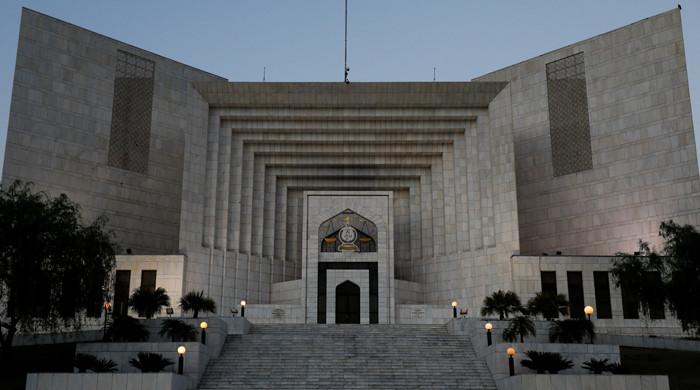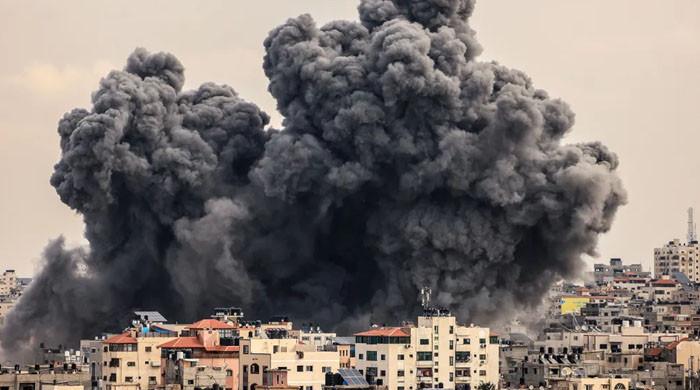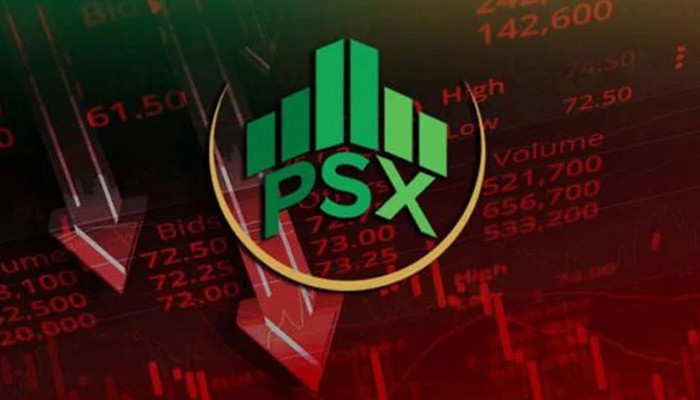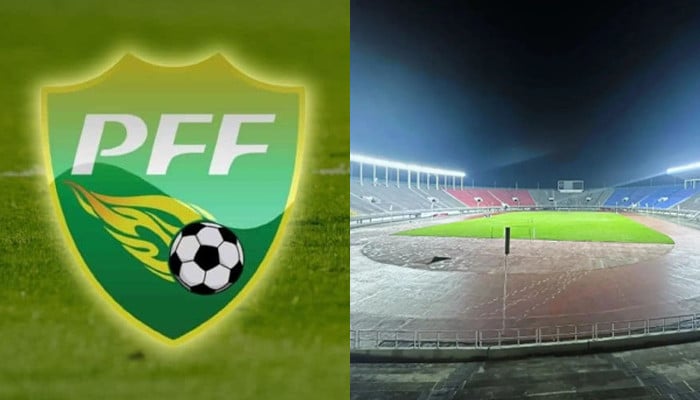- Petition filed in wake of SC ruling on Follow and Process Act 2023.
- Petitioner, who was not a part of hearings, says he’s “condemned unheard”.
- Plea challenges Sept 15 ruling which struck down adjustments to NAB regulation.
ISLAMABAD: The Supreme Courtroom’s September 15 ruling that struck down some amendments made to the Nationwide Accountability Ordinance (NAO), 1999, was challenged on Friday.
Within the wake of the highest court docket’s verdict upholding the Follow and Process Act 2023, Abdul Jabbar — by his counsel Farooq H Naek — filed a plea within the apex court docket, calling for setting apart the ruling on the NAB regulation.
The Supreme Courtroom had in a majority resolution of 10-5 on October 11, upheld the regulation formulated to control the affairs of the highest court docket, however famous that though the appropriate to enchantment supplied in opposition to a call taken below Article 184(3) is not going to be relevant retrospectively, it’s going to apply to these ruling which have been issued after the regulation got here into impact.
The NAB amendments case was associated to public significance; thus, it fell below the unique jurisdiction of the superior court docket i.e. Article 184(3) of the Structure.
Parliament handed the Supreme Courtroom (Follow and Process) Act, 2023, in April, and the apex court docket struck down the amendments to the NAB regulation in September, permitting the appropriate to enchantment.
In his petition, Jabbar said that he had “condemned unheard” however talked about that though he was not a celebration to the case earlier, the court docket had additionally not issued a discover to him on this regard.
The petitioner additionally mentioned that the court docket ought to train its jurisdiction below Article 184(3) “sparingly” and that the situations precedent for the train of this unique jurisdiction is “not fulfilled on this case”.
He claimed that the September 15 judgment was issued “with out contemplating the elemental ideas of parliamentary democracy in addition to laid down a precept for hanging out laws”.
“The […] judgment has declared the provisions of the amending Acts of the Parliament on the coverage consideration and opposite to the ‘will of the folks’ which the later scribed by the topic amendments,” the petition learn.
Jabbar additionally talked about that by the judgment, the court docket assumed the place of being a ‘legislator’ and ‘coverage maker’, which is past the scope of powers of the Supreme Courtroom below Article 184(3).
“The […] order suffers from errors floating on the floor of the document and is liable to be reviewed,” the petitioner added.
Concluding the plea, Jabbar prayed that the highest court docket put aside its September 15 ruling and supply “another reduction” that the superior court docket “deems match and correct”.
The decision
A 3-member bench of the Supreme Courtroom in a majority 2-1 verdict had authorised Pakistan Tehreek-e-Insaf (PTI) chief Imran Khan’s petition difficult amendments made to the nation’s accountability legal guidelines throughout the tenure of the earlier Pakistan Democratic Motion (PDM)-led authorities.
The three-member bench, headed by CJP Umar Ata Bandial, and comprising Justice Mansoor Ali Shah and Justice Ijazul Ahsan, held greater than 50 hearings on PTI chief Khan’s petition in opposition to the amendments and reserved the judgment on the listening to on September 5.
Within the majority verdict, the Supreme Courtroom restored graft circumstances in opposition to public workplace holders that have been closed down following the amendments.
The apex court docket ordered restoring all graft circumstances value lower than Rs500 million that have been closed down in opposition to the political leaders belonging to totally different political events and public workplace holders and declared the amendments void.
Moreover, the court docket directed the NAB to return all information associated to circumstances to related courts inside seven days.
The decision on Khan’s enchantment additional added that the NAB amendments below query affected the rights of the general public listed within the Structure.
The decision has some far-reaching penalties because the hanging down of the amendments would imply that references in opposition to among the nation’s political bigwigs will as soon as once more land within the accountability courts.
These embody the Toshakhana reference in opposition to Pakistan Muslim League-Nawaz (PML-N) Supremo Nawaz Sharif, Pakistan Peoples Occasion Co-Chairman Asif Ali Zardari and former prime minister Yousuf Raza Gilani, together with the LNG reference in opposition to former prime minister Shahid Khaqan Abbasi and the rental energy reference in opposition to former prime minister Raja Pervez Ashraf.






